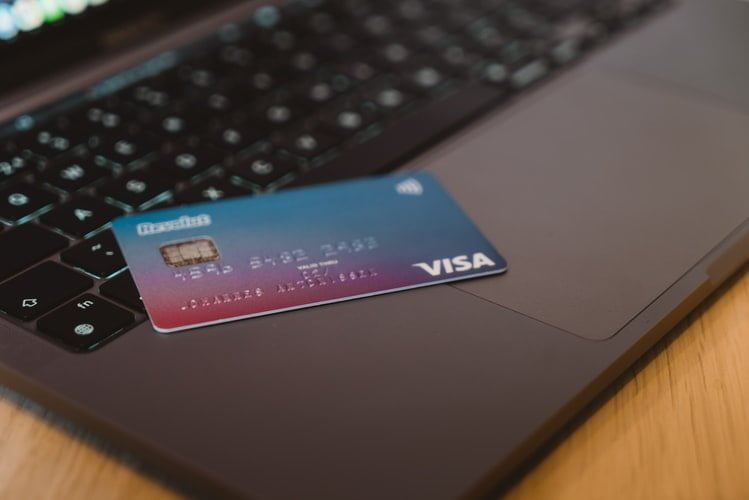9 Tips to Easily Boost Your Credit Score
by Arina Smith Finance 14 August 2021

Your credit score determines so much — from getting approved for loans to whether you can rent your dream apartment. The higher your credit score, the better. But unfortunately, maintaining a high credit score isn’t easy — especially after the financial upheaval of the last year.
If your credit score has plummeted, keep reading. In this article, we highlight tips that will help boost your credit score.
1. Pay Your Bills On Time

Payment history is the biggest factor in determining your credit score. A late payment, regardless of how small, can stay on your credit report for almost eight years. To increase your score, make sure you pay your bills on time.
According to Experian, creditors can report a late payment after 30 days. This means you have almost a month to pay your bill before it hurts your score. Keep in mind, you’ll probably still be charged late fees, but that’s better than missing a payment altogether.
If you aren’t able to pay your bill before the 30-day mark, contact the creditor to see whether you can develop a payment plan. By reaching out, you may find your creditor more likely to work with you to find a solution.
2. Apply for a Credit Builder Card
Another way to boost your credit is to apply for a credit builder card. Unlike traditional credit cards, users put a cash deposit down upfront, which is equivalent to the credit limit. This works as a safeguard in the event you miss a payment.
Other than this deposit, these cards work in the same way as traditional ones. When applying for a card, try to choose one that reports credit activity to all three credit bureaus: Equifax, Experian, and TransUnion. This will ensure your responsible use of a secured credit card has the maximum impact on your credit score.
3. Focus on Credit Utilization Ratio

Your credit utilization ratio is the percentage of credit you have available divided by your current balance and multiplied by 100. For example, if your credit line is $10,000 and your balance is $2,000, your credit utilization ratio is 20%. A good way to improve your credit score is to keep your utilization ratio low instead of letting it creep up.
According to financial experts, a good credit utilization ratio is anything below 30%. Great credit utilization is between 1% to 10%. If you can stay within that margin, that’s fantastic. But if not, do your best to aim for nothing over 30%.
4. Make Small Payments During the Month
As mentioned above, a good way to raise your credit score is to keep your credit utilization ratio low. One way to do that is by paying off your balance each month. But if you can’t swing that, make frequent payments throughout the month instead. Doing this will further lower your balance, even if incrementally, thus improving your utilization ratio.
Making multiple payments offers another advantage. Since interest is based on your daily balance, making multiple payments will also reduce the amount of interest you’re charged. The lower your balance is day-by-day, the lower your total interest payments will be.
5. Don’t Just Pay the Minimum

While credit card companies set a minimum payment for users, try to pay more than just the minimum each month. Why? While making the minimum payment helps you avoid late fees, you’ll be charged interest if you don’t pay off your balance. The more interest you acquire, the more money you’ll end up owing overall.
Ideally, you should pay off your balance in full each month, so you’ll avoid acquiring any interest. If you can’t, at least pay more than the minimum to keep the total down. The more interest you amass, the more credit you’ll be using. And as noted, a poor credit utilization ratio could potentially cripple your credit score in the long run.
6. Increase Your Credit Limit
Increasing your credit limit can lower your credit utilization ratio, which can improve your credit score. Be aware, however, that when you request a higher credit limit, your card issuer might run a hard credit inquiry. This inquiry could potentially lower your score, but only for a short time.
Before taking this step, though, consider your spending habits. Would increasing your credit limit encourage you to spend more money? If the answer is “yes,” increasing your limit might do your financial health more harm than good.
7. Review Your Credit Report
You may find it comforting to know that a poor credit score might not be your sole responsibility. There could be mistakes in your credit report, so it’s important to review yours regularly.
There’s a common misconception that checking your credit report is costly and might even harm your score. While you don’t want to view your report every five minutes, the only way to find errors is by looking. The good news is, credit reporting bureaus allow users one free copy of their credit report every year.
Take advantage of the offer and check for mistakes like balance errors, outdated or otherwise inaccurate information, and so on. If you do find an error, report it to the respective credit bureau as soon as possible.
8. Keep Credit Card Accounts Open
Paying off and closing a credit card account might seem like the height of financial responsibility. But instead of being a way to improve your credit score, it could actually hurt you.
As discussed above, your credit utilization is a huge factor in determining your score. If you close your credit card, you lose that available credit, thereby raising your credit utilization ratio.
The length of time you’ve had an account open is another factor in determining your score — and longer is better. So while you might want to close your account, keeping it open and using it sparingly is a better approach.
9. Spend Within Your Means
This should go without saying, but you’d be surprised by how many people live beyond their financial means. According to a Bankrate survey, over half of Americans have more debt than they have savings. They continue to spend, even when they shouldn’t.
If overspending is a problem for you, work with a financial advisor or use a budgeting app to create a responsible budget for yourself. Matching income to outlays will help keep you from spending over your means so you can avoid acquiring debt.
Boosting your credit score takes time, but it can be done. By embracing the tips above, you’ll steadily improve your credit score — and your financial well-being.
Read Also:







































































































